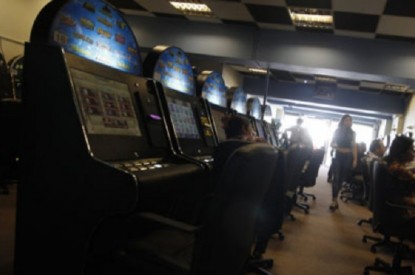Operator News
Chile – Chile’s High Court rules against slot association FIDEN
By Phil - 8 November 2017
The Constitutional Court of Chile has rejected a motion put forward by The Association of Operators, Manufacturers and Importers of Electronic Entertainment (FIDEN) against the Office of the Comptroller General of the Republic when it comes to slot machines.
The Chilean Association of Casinos Games (ACCJ) has reported that FIDEN an interest group for the SWP (Skill with Prizes) industry had sought to deny The Office of the Comptroller General of Chile the right to force municipal governments to deny the granting or renewal of licences that allow for slot parlours in their territory.
According to Chile’s gaming law, No. 19,995 gambling machines outside of casinos are banned under Chile’s gaming laws of 1995. In addition, since then the Chilean Gaming Board (SJC) has issued a number of new rules when it comes to the technical standards for slot machines as authorised under Law No. 19,995. New rules were issued partly in response to the growth of gambling machines in slot parlours.
The Lawyer acting on behalf of the ACCJ, Juan Carlos Manríquez, said: “This ruling confirms that the Comptroller has the power to reiterate to the municipalities that according to the law that they can not issue patents for electronic gaming when in fact what is being practiced is gambling. And for that reason they have to carry out inspections in their communes and make sure that they are tested by requesting a patent through the expertise of universities or institutions recognised by the SJC so that they are not illegal machines.”
The battle between FIDEN and the ACCJ has become increasingly acrimonious of late as well as public. Last week President of FIDEN Jaime Curihual, accused Juan Carlos Manríquez of having “underestimated our work and damaged the honour and the image of the people who operate in this work with dignity.” Writing in local news portal Capital, he said that the industry needed “a more modern and clear regulation, as has been successfully experienced by other countries such as the United Kingdom, Spain, Italy, Argentina and Colombia.”
The Constitutional Court’s decision comes after a number of moves made by the government to clampdown on the so called ‘neighbourhood casinos.’ In July 2016 the SJC released the results of its first survey into gaming machines operating outside of casinos. The wide-ranging study revealed that there are now more than 33,000 gambling machines operating illegally in Chile.
Then in January this year the Office of the Comptroller General of Chile issued a statement clarifying the procedure for the municipal governments when it comes to defining when machines should be classed as gambling machines in ‘neighbourhood casinos.’ The new guidelines indicate that the municipalities should ask those interested in obtaining permission to operate electronic gaming machines, to obtain a report from the SJC stating that prizes are not handed out randomly by the electronic machines on their premises.
The rules give the SJC the right to determine what constitutes random and what constitutes entertainment machines and state that only certifications issued by gaming laboratories approved by the SJC have the capacity to verify conclusively if a machine is either a gambling machine or if the result depends on an element of skill. The ruling issued by the Comptroller General was issued at the request of the SJC, and in the case that the body establishes that the result of the machine in question depends on chance, then the municipality will not be permitted to grant the machine permission to operate. The Office of the Comptroller General now considers that municipal governments must follow the new guidelines as the only guide when it comes to how they define gambling and non-gambling machines in their respective jurisdictions.


